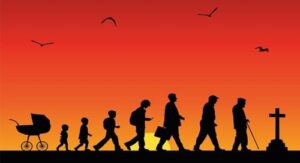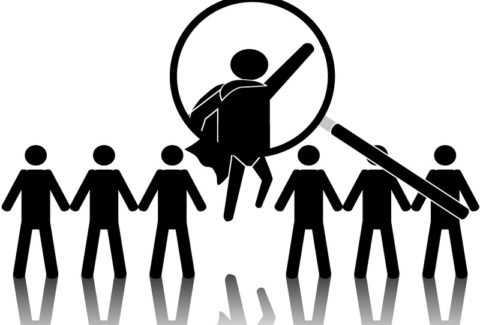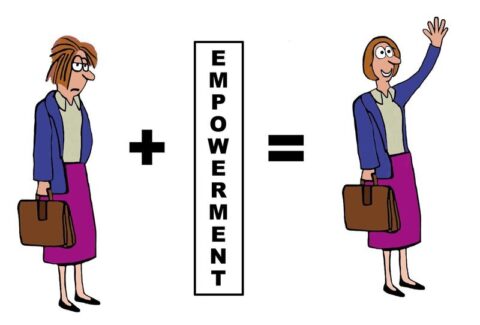Journey to Empowerment: An Introduction
“Journey to Empowerment. Interesting book. What is it about?,” asked a kind lady, sitting next to me, on a delayed flight. Our plane had been taxiing for the past 20 minutes. With a smile on her face, she posed that question as she watched me burry my face in this book. It was so buried that I barely caught a glimpse of her bright smile.
“Journey to Empowerment is a book written by the SWEET Institute in its vision to facilitate the empowerment of all  clinicians and others,” I responded, while looking at her eyes widening a bit, as if in awe. “I am a social worker,” she said. “I am now in private practice and I have done all kinds of work, as you can imagine, from the medical floor to inpatient psychiatry, and from being an outpatient mental health clinician to clinical supervisor, and social services director and Vice President of programming. I also worked for what used to be DCF and for the Office of Mental Health. I like this vision of the SWEET Institute. How can I get this book?” asked “my new friend.”
clinicians and others,” I responded, while looking at her eyes widening a bit, as if in awe. “I am a social worker,” she said. “I am now in private practice and I have done all kinds of work, as you can imagine, from the medical floor to inpatient psychiatry, and from being an outpatient mental health clinician to clinical supervisor, and social services director and Vice President of programming. I also worked for what used to be DCF and for the Office of Mental Health. I like this vision of the SWEET Institute. How can I get this book?” asked “my new friend.”
Journey to Empowerment is the first book written and published by the SWEET Institute. As the lead author, I refer to it from time to time, for refreshed wisdom, new understanding and practice. And, importantly, I use it as a reminder. Prompted by my conversation with a fellow clinician on the plane, I have been inspired to write a series of articles, which I hope will not only give others a glance at what this book is all about but also allow me to elaborate on many sections of the book, as needed.
Now buckle up, welcome to Journey to Empowerment, let’s dive in together, and let’s be empowered—together!!
Excerpt 1:
Each level or stage of life contains its set of corresponding ideas, state, and mindset. Unless these are all matched, there will be conflict, malaise, and disorder.

Social scientists talk about and study life stages, family cycles, and life courses. The family cycle are the stages each family member goes though, based on changes within the family over time, while the life course are the major transitions individuals go through, including graduating from school, entering the work force, and decisions around being single or getting married, among other transitions.
 Life stages, on the other hand are developmental phases, and they are known as “developmental” phases for a reason. In fact, each phase comes with its own set of characteristics from a biological, psychological, and social-cultural standpoint. In his book, The Human Odyssey: Navigating the Twelve Stages of Life, Thomas Armstrong, PhD talks about 12 stages of life, while Steven Mueller, on the other hand, speaks about the four stages of life, in an article that bears that same name: The Four Stages of Life. Yet, some others speak about seven stages of life. One can see how the specific stage of life or number of stages of life seems to matter less than the process and result of the stages of life. In the book, Journey to Empowerment, by “level or stage of life” the SWEET Institute is referring to not only these major developmental phases, each with its own set of bio-psycho-social-cultural characteristics, but also to those “minor developmental phases.” These “minor” levels or stages of life may take slightly different forms. They include and are not limited to: Starting a new job, experiencing a promotion, starting a relationship or leaving a relationship. All of these examples can be seen as life transitions, which in turn can take place within each of major life stages.
Life stages, on the other hand are developmental phases, and they are known as “developmental” phases for a reason. In fact, each phase comes with its own set of characteristics from a biological, psychological, and social-cultural standpoint. In his book, The Human Odyssey: Navigating the Twelve Stages of Life, Thomas Armstrong, PhD talks about 12 stages of life, while Steven Mueller, on the other hand, speaks about the four stages of life, in an article that bears that same name: The Four Stages of Life. Yet, some others speak about seven stages of life. One can see how the specific stage of life or number of stages of life seems to matter less than the process and result of the stages of life. In the book, Journey to Empowerment, by “level or stage of life” the SWEET Institute is referring to not only these major developmental phases, each with its own set of bio-psycho-social-cultural characteristics, but also to those “minor developmental phases.” These “minor” levels or stages of life may take slightly different forms. They include and are not limited to: Starting a new job, experiencing a promotion, starting a relationship or leaving a relationship. All of these examples can be seen as life transitions, which in turn can take place within each of major life stages.
While the above may be known and understood by many, what may be less understood is that each of these major or minor life stages comes with its set of challenges and opportunities, which then correspond to a set of ideas, states, and a mindset, all of which need to be aligned. In other words, these major or minor life stages require a set of attitudes, which as mentioned on page 40 in Journey to Empowerment, determines our thoughts, feelings, and actions. What is most important to know is that as we undergo these transitions, we may have difficulty managing the challenges that come with them, unless we adopt the corresponding attitude that helps create the match we need, one that will therefore prevent conflict, malaise, and disorder. The book, Journey to Empowerment contains these required tools that will help us towards this process of alignment. Use these tools and share them with others
References:
1. Thomas Armstrong, The Human Odyssey: Navigating the Twelve Stages of Life. New York: Sterling, 2009
2. M. Sidor, et al. Journey to Empowerment. SWEET Institute, 2018
3. Craig Schlarb, Book Review of The Human Odyssey, Journal of Transpersonal Psychology, 208, vol. 40, no.2, pp. 251-254.
4. Steve Mueller. The Four Stages of Life. Planet of Success. April 1, 2017









